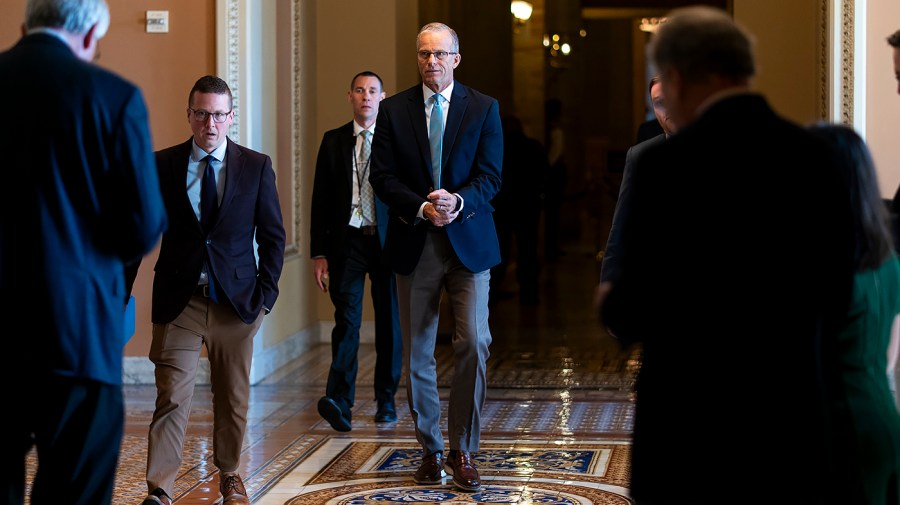Senate Republicans are taking a bigger swing at Medicaid in their version of legislation to fund President Trump’s domestic policy agenda and extend his first-term tax cuts.
According to text released by the Senate Finance Committee late Monday, the legislation seeks to clamp down on two tactics states use to boost Medicaid funding to providers: state-directed payments and Medicaid provider taxes.
The legislation would effectively cap provider taxes at 3.5 percent by 2031, down from the current 6 percent, but only for the states that expanded Medicaid under the Affordable Care Act. The cap would be phased in by lowering it 0.5 percent annually, starting in 2027.
Nonexpansion states would be prohibited from imposing new taxes, but as was true in the House-passed version, their rates would be frozen at current levels. The lower cap would not apply to nursing homes or intermediate care facilities.
All states except Alaska finance part of the state share of Medicaid funding through at least one provider tax, according to health policy research group KFF. There are 47 states and the District of Columbia with at least 1 provider tax or fee of more than 3.5 percent.
Limiting provider taxes is a long-held conservative goal, as they argue states are gaming the current system and driving up federal Medicaid spending. The policies are designed to inflate Medicaid spending on paper to allow states to receive more federal reimbursement dollars.
States pay hospitals more, which drives up their Medicaid spending, so they receive higher federal reimbursement. The states tax providers, but the tax is less than what the government is reimbursing to the state. So essentially, providers and states receive federal matching funds without spending their own money.
The change in the Senate bill is sure to anger Republicans who were already expressing concerns about the impact of the freeze in the House-passed version. Provider taxes have become an important lifeline for hospitals, and rural hospitals would be hit hardest by the cuts.
The Senate bill also cuts certain existing state-directed payments to hospitals, which would be a significant hit to the hospitals’ bottom line. The House version in contrast limited future payments but grandfathered existing arrangements.
“These harmful proposals will impact access to all patients who are served by our nation’s hospitals and health systems. These cuts will strain emergency departments as they become the family doctor to millions of newly uninsured people. Finally, the proposal will force hospitals to reconsider services or potentially close, particularly in rural areas,” said Rick Pollack, CEO of the American Hospital Association.
Like the House bill, the Senate legislation imposes work requirements on Medicaid beneficiaries beginning at 19 years old.
But the Senate version says adults with dependent children older than 14 will also have to prove they work, attend school or perform community service for 80 hours a month, while the House-passed version would exempt all adults with dependent children.

